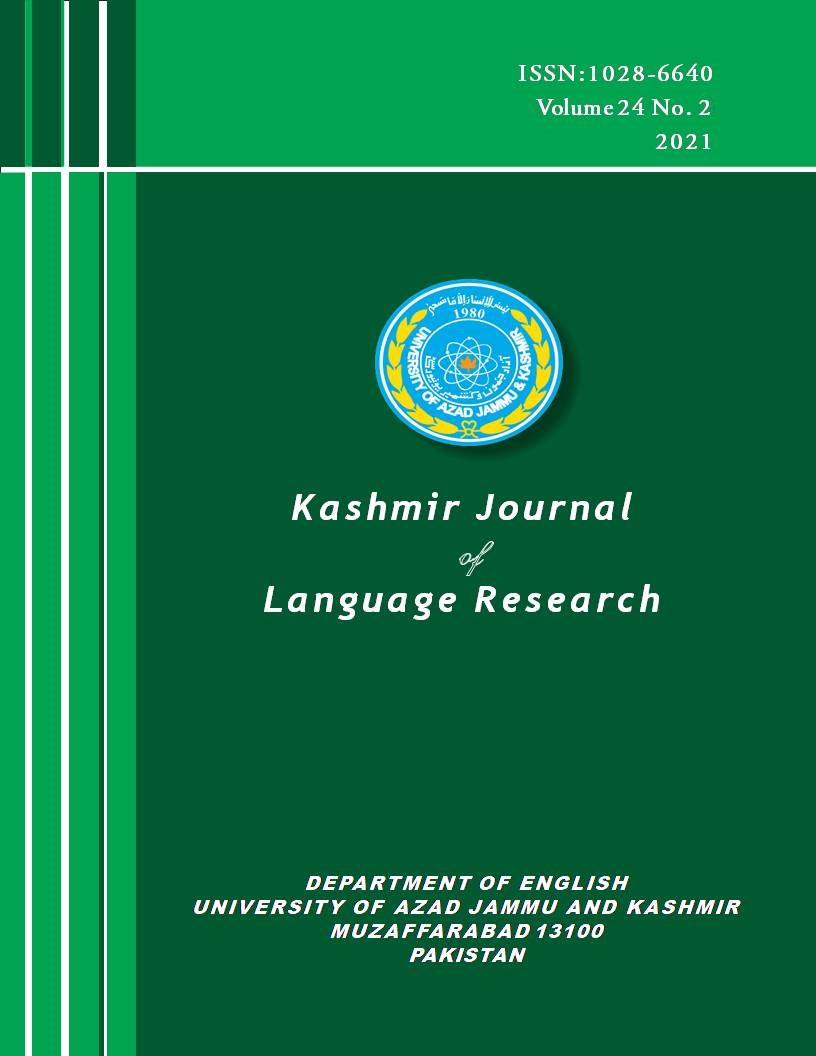Interstitial liminality, Assimilation and Alterity in H.M. Naqvi’s Home Boy
Keywords:
identity, 9/11, liminality, alterity, colonial discourseAbstract
In the wake of 9/11 catastrophe, the ‘Muslim identity’ came under serious suspicion and investigation that suddenly captured the consciousness/conscience of both the reader and the writer of the East and the West. Especially, it caught the attention of Pakistani writers because Pakistan had (largely) to bear the brunt of this tragedy. This study has a socio-political punch in the wake of 9/11 phenomenon that has seriously affected psychology of the Pakistani Muslim community in general and youth in particular. This paper also examines pre-9/11 conditions of the Muslims who feel and find themselves assimilated, integrated because of the interstitial liminal space which give them allowance for appropriation. I argue that post-9/11 scenario they not only find themselves physically displaced but also psychologically unsettled. The moment, they land into the new-land, find themselves gripped in a psychological limbo copping with new culture, people and customs. Sometimes they feel that they belong to both the cultures and at other times to the neither. It closely studies hegemonic role of state apparatus: Federal Bureau of Investigation and Metropolitan Detention Centre and the dominant role of American media, especially CNN which had been a source of (mis)representation of Islam and Muslims. They remain under strict surveillance of the invisible eye that reduce them to mere object position. Textual analysis has been used as a research method to read H. M. Naqvi’s Home Boy. I have invoked specific theoretical concepts of Edward Said, Homi K. Bhabha, Frantz Fanon and Gayatri Chakravorty Spivak for the analysis of my primary text.

Downloads
Published
Issue
Section
License
Copyright (c) 2022 Kashmir Journal of Language Research

This work is licensed under a Creative Commons Attribution 4.0 International License.




